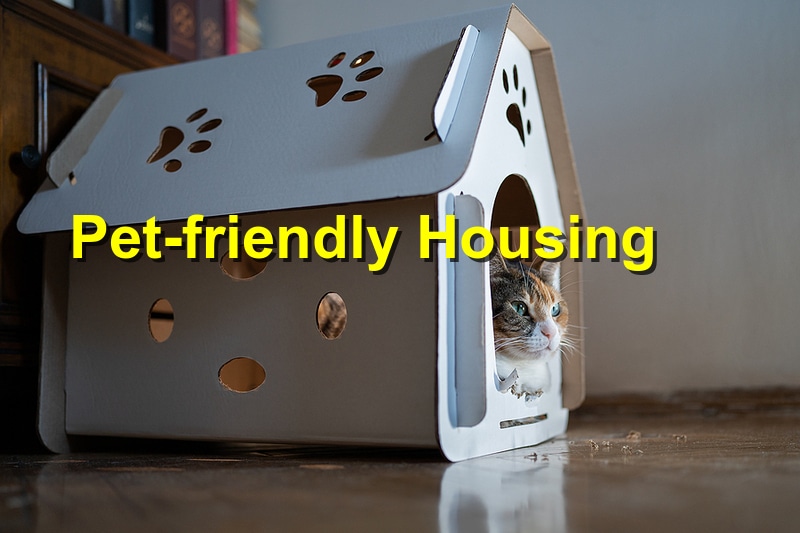The Role of Pet-Friendly Housing in Animal Welfare

Pets play an integral role in our lives, providing companionship, love, and support. However, finding suitable housing that accommodates our furry friends can be a challenge. The availability of pet-friendly housing has a significant impact on animal welfare. In this article, we will explore the role of pet-friendly shelter in promoting animal welfare, the benefits it offers to both pets and their owners, and the importance of encouraging more housing options that welcome pets.
- Promoting Responsible Pet Ownership: By providing pet-friendly housing options, communities encourage responsible pet ownership. When pet owners have access to suitable housing, they are more likely to provide proper care for their pets. This includes regular veterinary visits, appropriate exercise, and socialization opportunities. Pet-friendly housing reduces the risk of pet abandonment or relinquishment due to housing difficulties, leading to improved overall welfare for animals.
- Emotional and Physical Well-being of Pets: Pets thrive in environments where they feel secure and loved. Access to pet-friendly shelter ensures that pets can stay with their owners, reducing the stress and anxiety that can arise from separation. Living in a pet-friendly environment allows pets to maintain their familiar routines and surroundings, resulting in better emotional well-being. Moreover, pet-friendly housing often provides amenities such as nearby parks, walking trails, or designated pet areas that promote physical exercise, keeping pets healthy and active.
- Enhanced Social Interaction: Pets are social creatures, and pet-friendly housing facilitates social interaction for both pets and their owners. In communities with pet-friendly policies, residents are more likely to engage in conversations and build relationships with their neighbors through their shared love for animals. This social cohesion can contribute to a sense of community and well-being for both humans and pets, creating a supportive and inclusive environment.
- Reduced Animal Homelessness: Lack of pet-friendly shelter is one of the leading factors contributing to animal homelessness. When individuals and families are unable to find housing that allows pets, they may be forced to give up their beloved companions or make the difficult decision to live without a permanent home themselves. By increasing the availability of pet-friendly housing options, communities can help reduce animal homelessness, providing stability and security for both pets and their owners.
- Economic Benefits: Pet-friendly shelter can have positive economic impacts on communities. Pet owners are more likely to stay longer in a pet-friendly rental or purchase property in areas that accommodate their pets' needs. This stability reduces turnover rates, promotes community loyalty, and can enhance property values. Additionally, pet-friendly housing can stimulate the local economy by increasing demand for pet-related services and products, such as grooming, veterinary care, and pet supplies.
Conclusion
Pet-friendly housing plays a crucial role in promoting animal welfare by supporting responsible pet ownership, enhancing the emotional and physical well-being of pets, fostering social interaction, and reducing animal homelessness. Communities that recognize the significance of pet-friendly housing create inclusive environments that benefit both humans and animals. It is essential for policymakers, property owners, and community organizations to collaborate and encourage the development of more pet-friendly housing options to ensure the welfare and happiness of pets and their owners alike.
References: AAWA, PetandHousing
https://braseltonervet.com/?p=3849
Comments
Post a Comment